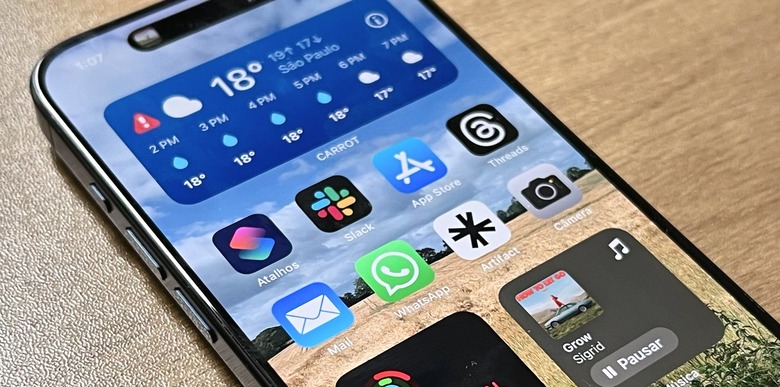The EU's Next Beef With Apple And The iPhone Actually Makes Sense
I'm a longtime iPhone user who has been quite critical of the European Union's Digital Markets Act (DMA) regulation since it came into force last year. I've done this as someone who will be directly impacted by the changes the EU is imposing on Apple.
While the DMA should promote competition and have the customer's best interest at heart, it's actually doing me a massive disservice. Apple is delaying some software features in Europe.
I can't use Apple Intelligence on my iPhone and the iPhone Mirroring feature is not available in Yosemite on the Mac. This didn't happen before. Apple would roll out the same software updates in Europe as in the US and other markets.
The excessive regulation has also impacted other products, especially on the AI side of things. For example, I only got access to ChatGPT Advanced Voice Mode a few weeks ago, well after the US launch.
But fast-forward to Tuesday, and Brussels announced a new beef with Apple. This time, it's one that actually makes sense for the EU block, as lawmakers are asking Apple to stop geo-blocking practices on its digital stores.
Geo-blocking essentially allows Apple to provide specific content for a specific country. However, it's not entirely up to Apple, as app developers can also choose where to make their content available. The same might go for other types of content.
I have encountered the issue at least a few times over the years. I was not able to download a specific app on the iPhone because it wasn't available across the EU. Instead, it was serving only a specific market. The EU wants Apple to stop geo-blocking practices "on certain Apple Media Services, namely App Store, Apple Arcade, Music, iTunes Store, Books and Podcasts."
The EU said in a press release that the Consumer Protection Cooperation (CPC) Network has identified "limitations" on Apple Media Services that "unlawfully discriminate European consumers based on their place of residence."
These are the limitations the CPC Network highlighted:
Online access: Apple Media Services have a different interface for different countries in the EU/EEA. In the app version of these services, consumers are only allowed to access the interface made for the country where they have registered their Apple account and face significant challenges when attempting to change this, which is not allowed under EU's anti-geo-blocking rules.
Payment methods: When making paid purchases on Apple Media Services, consumers are only allowed to use means of payment (such as a credit/debit card) issued in the country where they registered their Apple account.
Downloading: Since App Store does not allow consumers to access the version of another EU/EEA country, consumers are not allowed to download the apps offered in other countries. Consumers should be able to download apps offered in other EU/EEA countries when they travel to or temporarily stay in that country
I already explained the app download issue, and that's something Apple should easily fix, as long as developers are involved.
I don't care as much about the user interface of an Apple marketplace in different markets. Nor do I care about using payment methods issued in a country other than my country of residence, where I've registered my Apple account.
However, as a frequent traveler in the EU, I can understand how these issues might impact those people who temporarily live and work in a different EU country. The alternative is creating a different Apple ID, which is hardly convenient.
Following this investigation, Apple has one month to reply to the CPC Network and propose ways to address the geo-blocking practices. It's unclear what will happen if Apple fails to comply, but the press release warns that national authorities "can take enforcement measures to ensure compliance."
The Geo-blocking Regulation was adopted in 2018 to ensure better access conditions to goods and services across the EU/EEA. That involves all sorts of products, not just digital downloads available on iPhone and Android.
The announcement also notes that the CPC Network targeted Google's Android with a similar action in 2023. Google made the appropriate changes, apparently:
Google committed to clarify how to browse different country versions of the Google Play Store and inform developers about their obligations under the Geo-blocking Regulation to make their apps accessible EU-wide, as well as enable consumers to use means of payment from any EU country on Google Store.
This suggests Apple might take a similar approach in the near future. Whatever Apple does here will not impact other international jurisdictions or Apple's ongoing disputes over the DMA. However, complying with the Geo-blocking Regulation could buy Apple more goodwill with the EU's regulators.
